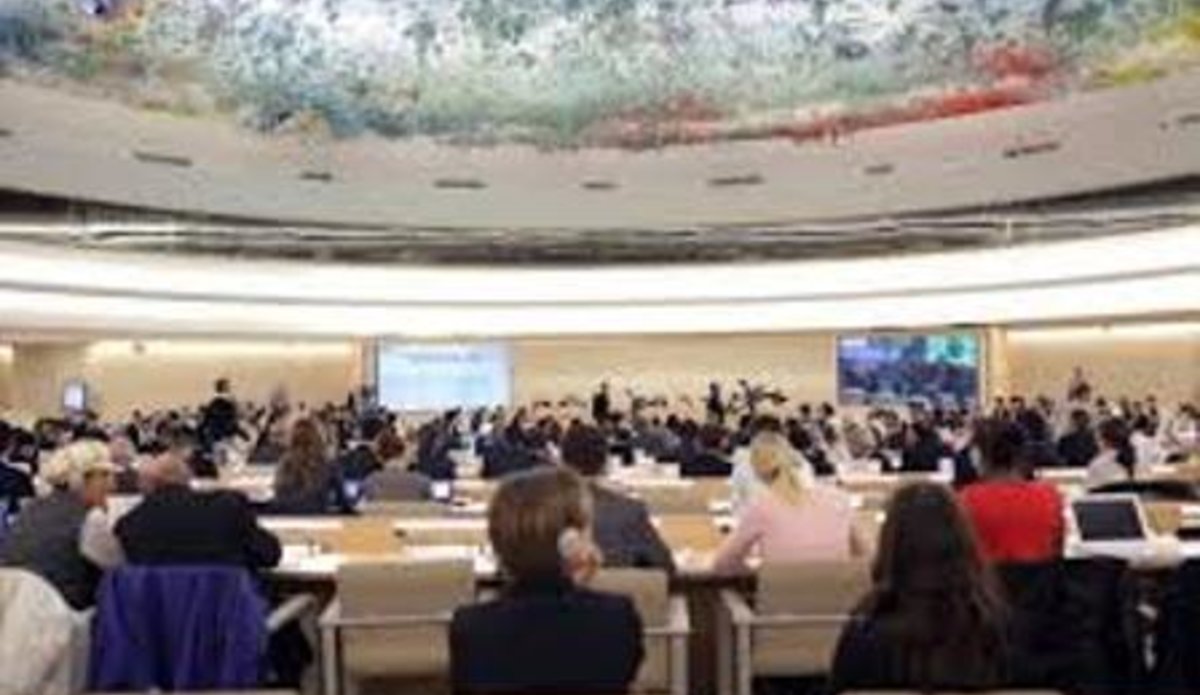UPR makes 151 recommendations to improve Human Rights in Guinea-Bissau
29 January 2015 -The Working Group of the UN Human Rights Council’s Universal Periodic Review (UPR) examined Guinea-Bissau’s Human Rights situation on 23 January at Palais des Nations in Geneva, together with other member states.
The Working Group adopted 151 recommendations, including:
a) Strengthening human rights, particularly with regard to child protection and gender discrimination, adopt a national human rights action plan, combat impunity, prosecute human rights violations committed by members of the security forces, and submit overdue reports to treaty bodies;
b) Accede to the Convention on the Non-Applicability of Statutory Limitations to War Crimes and Crimes against Humanity, ratify the Rome Statute of the ICC, the Optional Protocol to the Convention on the Rights of Persons with Disabilities, CAT, Migrants Workers, OP-ICESCR, establish an inter-ministerial committee to implement UPR, and review the Statute of the National Commission.
c) Improve health and education to reduce infant and maternal mortality, youth employment, and increase health budget to at least 12 per cent GDP, in line with the Abuja Declaration;
d) Reform the defence, security and justice sectors, ensure transparency in the administration, and improve detention conditions
Guinea-Bissau will review these recommendations and communicate its acceptance or reservations in due time, but no later than the 29th session of the Human Rights Council, which starts from 15 June to 3 July 2015.
The first review of Guinea-Bissau took place in May 2010 during the 21st session of the UPR and made 105 recommendations. The country accepted 101 of them, considered two as already implemented, and expressed reservations about five.
The recommendations for all member states are usually based on information provided by the State in its national report, reports by independent human rights experts and groups, known as the Special Procedures, human rights treaty bodies, and other UN entities, and also by other stakeholders including national human rights institutions, regional organizations, and civil society groups.
The UPR is a unique process which involves a periodic review of the human rights records of all 193 UN Member States (every four years). Since its first meeting was held in April 2008, all 193 UN member States were reviewed during the first UPR cycle, and 112 member states so far, during the second cycle. The second review of States aims to highlight human rights developments in the country since its first review, and provides an opportunity for States under review to spell out steps taken to implement recommendations posed during their first review.
The delegation of Guinea-Bissau was headed by José António da Silva Gonçalves, Adviser to the Minister of Justice on Strategic Planning, and composed of the following members:
-Ms Aida Injai Fernandes, President of the National Human Rights Commission;
-Mr. Cletche Sanhá, Director of the Treaties Section of the Ministry of Foreign Affairs;
-Mr. Luís Vaz Martins, President of the National Human Rights League.
 UN
UN





